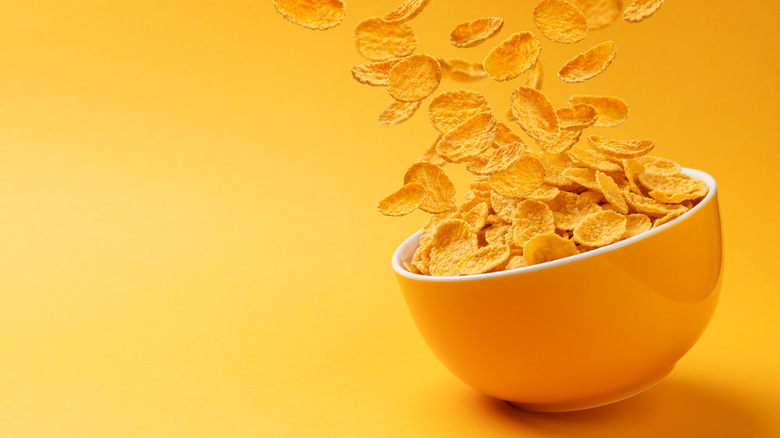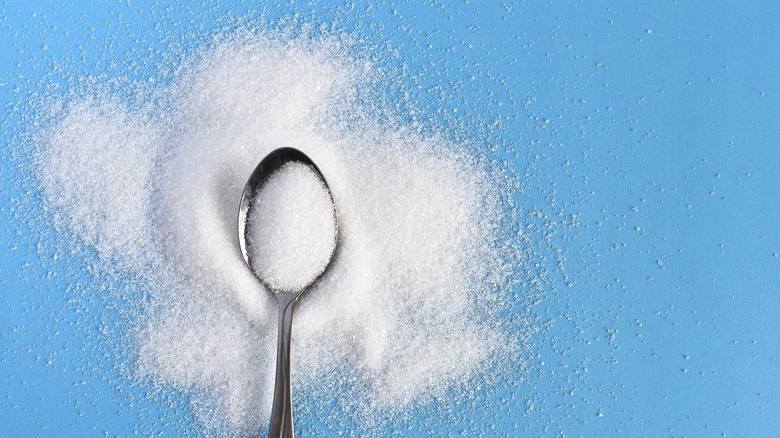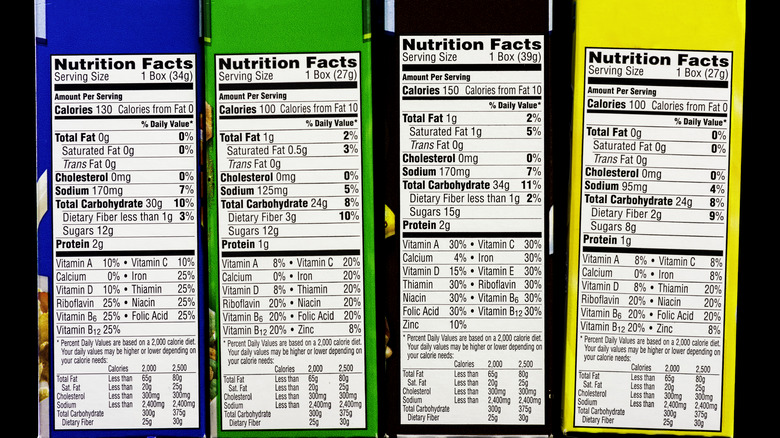Why Cereal May Not Be As Nutritious As You Think
It's a tale as old as time: Eat your Wheaties, and you'll grow big and strong — you may even win an Olympic medal. Make sure your flakes are frosted — they're great that way and will bring out the tiger in you. You'll go cuckoo if your puffs are cocoa, and don't forget, Trix are for the kids. Mothers approve of Kix, and Lucky Charms are magical. Honey-sweetened Cheerios will leave you happy and healthy. In other words, breakfast cereal is where it's at in the morning (via Wicked Good).
Cereal has been around since the mid-19th century, per The New York Times. And while it's taken on many different forms and functions along the way, it has remained a tried and true breakfast staple. There are entire grocery store aisles dedicated to it, boxes stacked from foot to ceiling. What started as a healthy food has expanded into varieties that rival desserts. While it's easy to decipher the outright sugary cereals to the all-bran and whole grain varieties, the category as a whole isn't exactly as nutritious as we may think. So is it time to put down the box and switch up our breakfasts?
Too sweet of a start
Most cereal is made from grains — typically wheat, corn, oats, and rice. To form those uniform flakes, loops, and puffs that fill your bowl, they go through an extensive refinement process that often involves grinding them into flour and adding preservatives, salt, flavors, and sweeteners (via How Products are Made). Unfortunately, this process and the resulting product puts cereal in the refined carbohydrate category, which is no friend to our blood sugar and health.
Many kinds on the market are loaded with sugar. Per Business Insider, a serving size of the average cereal comes in at 19.8 grams of sugar; for reference, the American Heart Association recommends just 36 grams per day for men and 25 grams for women. So, considering the average person's cereal pour is probably on the heavier side of serving size, you'll be maxed out on your sugar intake before you even head out the door in the morning.
Not only is excess sugar consumption linked to several deleterious effects on your health, such as type 2 diabetes, heart disease, and weight gain, per WebMD, but beginning your day with a bowl of the sweet stuff sets you up for a blood sugar spike. For example, a study published by Stanford in PLOS Biology in 2018 found that just about every participant experienced a blood sugar surge into the prediabetic range after a bowl of cornflakes.
New labeling laws
A good method to mitigate that sugar spike is to read labels. While you may feel like you need your dictionary and calculator apps to navigate the back of the box, new rules proposed by the Food and Drug Administration are going to make it much easier. Many cereal boxes are splattered with claims about heart health, cholesterol, fiber, and sugar, but the FDA may soon be cracking down on what does and does not qualify as "healthy." They will be taking a more holistic approach and considering the whole grain, sugar, sodium, and saturated fat content to redefine the parameters and set stricter guidelines about what cereals can deem themselves "healthy."
As a result, according to CNBC, seven popular brands we know to be healthful breakfast options will no longer make the cut. While not enacted just yet, the new FDA guidelines may change breakfast as we know it and have us retiring the bowl and reaching for a plate and fork.


